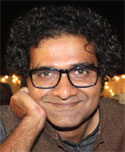
By Arshad Alam, New Age Islam
2 April 2016
The recently held Sufi Conference in Delhi provided an opportunity to discuss Islam’s position with respect to pluralism, religious co-existence and sharing different belief systems. It was one of the first much-needed effort on part of Indian Islam to clear its position vis-à-vis other religious traditions.
Going by the response that the Conference had, one can only wish that more such conferences are organized which showcase a radically different set of Islamic commitments to the problem of co-existence. The intention was therefore noble, but intentions must be followed by actions in order that they become effective. The problem, however, is that the causes espoused by the Conference cannot be fulfilled in a limited time span but rather need much more of a concerted and sustained effort on an everyday basis. One will only have to wait and see how some of the pious proclamations can be effectively put into practice without going into the very basics of Islamic teachings.
Consider for example the idea of sharing between different religious communities which was one of the hallmark declarations of the Conference. Now, one would have hoped that the Conference adopt a resolution categorically stating that Islamic superiority should be done away with and in its place what the Muslims need is a genuine attempt to understand other faith traditions like Hinduism, for example, which is especially relevant in the Indian context.
So is the Sufi conference willing to engage with Hinduism with a genuine desire to understand this religious tradition as having a ‘true’ belief system for its followers? Or is it that as is the general practice with many other Islamic orientations, the Sufis will also club Hinduism with other idolatrous faiths and then will consider it only fit to be refuted and not engaged with?
Why I am highlighting engagement is because only through such an interaction can a genuine and real dialogue be formulated across different religious traditions and faith systems. If Islam, even in its Sufi avatar continues to speak to religions like Hinduism from a high pedestal, then possibly there can be no genuine dialogue but only very boring monologue of the kind Zakir Naik indulges in. As we all know, monologue promotes an asymmetrical power relationship between the person who is speaking and the person who is spoken to. It does not promote any mutual understanding; neither does it promote any kind of religious knowledge sharing. One can only hope that the Sufi Conference will consider initiating dialogues with Hinduism and other Indian faiths, especially at the local level so as to encourage inter-faith understanding and co-existence.
However, from the papers presented in the seminars held as part of the Sufi Conference or even in terms of the declaration, one is pained to notice that there isn’t any deep sense of engagement with the issues enumerated above. It certainly leaves one with the impression that the whole Conference was designed to give another kind of political statement. And this statement had nothing to do with focusing on developing a context specific theology of Islam; rather it was more about posturing and projecting the group as the moderate face of Islam in India. It is therefore supremely convenient for the present government to come close to this group and become champion of moderate Islam.
It also makes sense to market this ‘Indian Islam’ to the world in an attempt to showcase our heritage of tolerance. Needless to say, the championing of this Indian sense of tolerance is premised on the assumption that India is tolerant because India is Hindu. Moreover, it also rescues the current government of charges of targeting religious minorities in India by showcasing that the numerical majority of Indian Muslim, the Barelvis, are completely happy with the current government.
So is the charge of fomenting sectarianism which is being made against the Sufi Conference by a section of Muslims led by the Deobandis and Jamaat-e-Islami necessarily true? I find this complaint baseless for the simple reason that divisions within Indian Islam are not the creation of the present government but has been around for a very long time. Sectarian divisions within Indian Muslims have been so acute that it has not inhibited them from calling each as Kafirs. No particular government is responsible for this but this is solely the result of internal squabbling within the Muslim community. These divisions have been fuelled by different interpretations of Islam, each going back to the Quran and Hadiths and each proclaiming itself to be the true heir and representative of the glorious and pristine purity of Islam.
However, over the years, what is also true is that the Deobandis have had an upper hand when it came to capturing positions of power and prestige. Most Muslim bodies were disproportionately represented by the Deobandis which meant that the Barelvis were feeling slighted for a long time. Matters came to such a pass that Deobandis, through their travelling wing the Tablighi Jamaat, started capturing Barelwi mosques and other properties belonging to Waqf. All of this contributed to a growing sense of unease among the Barelvis. The Sufi Conference and their demand of liberating such properties from the clutches of Deobandis can be seen as an attempt on the part of Barelvis to regain control of what they think legitimately belongs to them. And going by the tenor of the Conference, this is certainly not going to be the last of such attempts.
A newageislam.com columnist, Arshad Alam is New Delhi based writer.




 Moderate Islamist here
Moderate Islamist here


0 comments:
Post a Comment